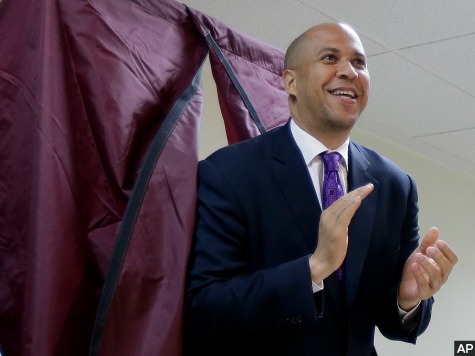The number of carjackings has instilled such a fear of the town in some New Jerseyans that one auto mechanic in Newark told the Times he has to offer some clients to drive the cars into Newark himself to keep business stable, as they fear driving into the city themselves. Meanwhile, violent crime is also up at an alarming rate, with 100 murders in Newark this year alone.
Carjackings, the Times suggests, have become increasingly popular because of advanced technology that requires the owner of the car to be in the car in order for it to function. Even stealing the key or attempting to otherwise turn it on is no use with many of the newer and more coveted vehicles– which, once stolen, often end up in either Newark of Elizabeth seaports, off to be sold overseas.
The devastating report comes at a crucial time for the city, and at the culmination of a mayoral tenure that once stood out nationally for its ability to fight crime. Senator Booker’s seven years in office succeeded that of Mayor Sharpe James, who was not too busy serving jail time during Booker’s entire tenure to make public his distaste for his successor. After all, Booker had been elected in part as a rebuke to the old under-the-table style of politicking that landed James in prison to begin with.
Booker was also reelected for similar reasons. A glowing NPR report from 2010 argues that Booker’s 59% vote percentage for reelection could in large part be attributed to his work on crime. At the time, that argument was not so ludicrous– murders had fallen 60% since Booker first entered office in 2006. Under Booker, Newark had its first murder-free month in nearly half a century. But something went awry between 2010 and Booker’s Senate race, as the city’s murder rates began to once again rise and the press wonder what had gone wrong for Booker’s first term victories to have become an epidemic that, in Booker’s words, was “unconscionable.”
His Republican opponent Steve Lonegan had a theory, one that many mocked despite entertaining it when Sharpe James– or the New York Times, or the Star-Ledger, or even Gawker— was the one attacking. Booker was too heavily invested in turning himself into a national figure, at the detriment of the city. Lonegan, a mayor himself, used their official Senate debate to highlight the alarming murder rates in Booker’s city, and at one point in the campaign went as far as to argue that James’ tenure had been better.
New Jersey rid Booker of Newark anyway, aiding his ascent to the Senate. But now Newark has to pick up the pieces, their celebrity titan out of the spotlight and the criminal tidal wave hitting them plain to see. The Times report notes that the Christie Administration has begun tackling the problem with special carjacking task forces, monitoring the seaports on either side of Newark with more security. Without addressing the city infrastructure that is breeding this particular type of criminal, however, all Newark police can hope to do is dissuade carjackers from being carjackers, without preventing youth from becoming criminals at all.

COMMENTS
Please let us know if you're having issues with commenting.